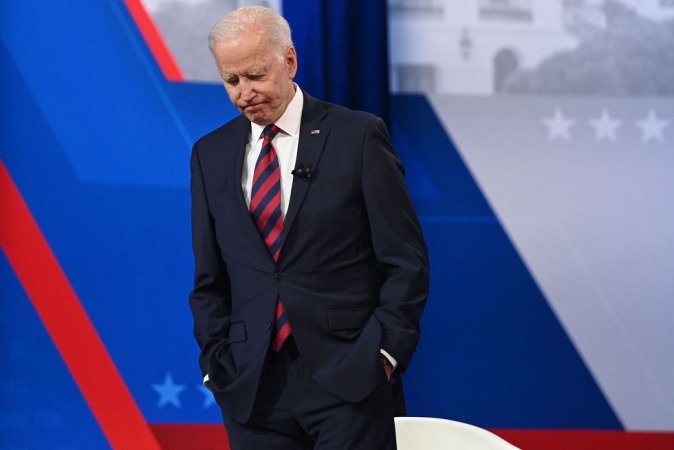Amir Ali Abolfath, in an interview with the website of the Strategic Council on Foreign Relations, referred to the polls and the decline of Biden’s popularity in the United States and the Americans’ satisfaction with the administration to 33 percent, noting: Although the results of numerous polls conducted in the United States cannot be trusted, however, Biden is still not very popular in that country.
He added: The United States is not on the verge of a presidential election and Biden’s popularity is not that much important for the Democrats. His administration has several internal problems, the main of which is economic inflation. The average price of gasoline in the United States has reached 5 dollars a gallon, and in some states it has increased to 7 dollars. This increase in fuel prices is putting a heavy pressure on the economy and the people of that country.
The expert on US affairs, saying that inflation in the United States has reached its highest level in the past 60 years, added: In this context, experts have warned of the danger of a recession or stagflation in the United States, and such problems increase criticism of the incumbent president. Meanwhile, we are witnessing an increase in violence in that country, and along with that, the society has become highly polarized, and the Republicans are not satisfied with any measure taken by the Democratic president, and vice versa.
Saying that political differences within the Democratic Party have escalated, Abolfath noted: The set of internal challenges and conditions does not paint a good picture of the United States, especially in the 1970s or 1980s, when the United States introduced itself as the ideal model of democracy and human rights for much of the world and used it as one of its foreign policy drivers, such a situation has changed and a favorable image of the United States is not seen. People around the world have seen the challenging US election and its aftermath, including the occupation of Congress, restrictions on freedoms, and torture and imprisonment.
Stressing that the United States has a number of internal problems, and its distorted image has negatively affected its soft power, he said: Given that foreign policy is a continuation of any country’s domestic policy, such challenges and shortcomings make it difficult for the United States to continue to be the leader of a group of nations and to present itself as the leader of democracy and human rights. Some of its allies in Europe and Asia also wonder how strong and stable the United States could be in principle to be instructive to others.
Democrats likely to lose midterm elections
The expert on US affairs, commenting on the impact of US domestic challenges on midterm elections, said: Traditionally, in the first election after the start of a presidential term, the White House-based party either loses in the Congress or loses a seat. It is to be expected that such a process will be repeated for the Democrats in the 2022 elections. Given that they hold 50 percent of the seats in the Senate, Republicans will win the Senate if two or three seats change place.
Abolfath added: This trend has been common in elections so far, but now the situation in the United States is very chaotic for various reasons, including living conditions and high inflation, insecurity, violence, differences and the widening of ideological gaps. Under such circumstances, the situation of the Democrats in the popular vote will be aggravated and predictable. They will not be able to easily win the 2024 elections, either with Biden or any other candidate.
He explained: Although there is still a long way to go before the presidential election and there may be events that break all expectations, now that there is less than 150 days until the midterm congressional elections, the chance that the Democrats will be able to maintain their place in the Congress is very weak.
The expert on US affairs, referring to Biden’s election promises regarding the US return to the Joint Comprehensive Plan of Action (JCPOA) and the current US strategy towards a nuclear deal given the non-fulfillment of the promises he had made in this regard, said: Foreign policy is not the concern of the American people, the issue of JCPOA is also one of the elite issues in that country. Therefore, the US administration will not maneuver on it in the hope that it can strengthen its position among its supporters, and does not see it as an election issue.










0 Comments